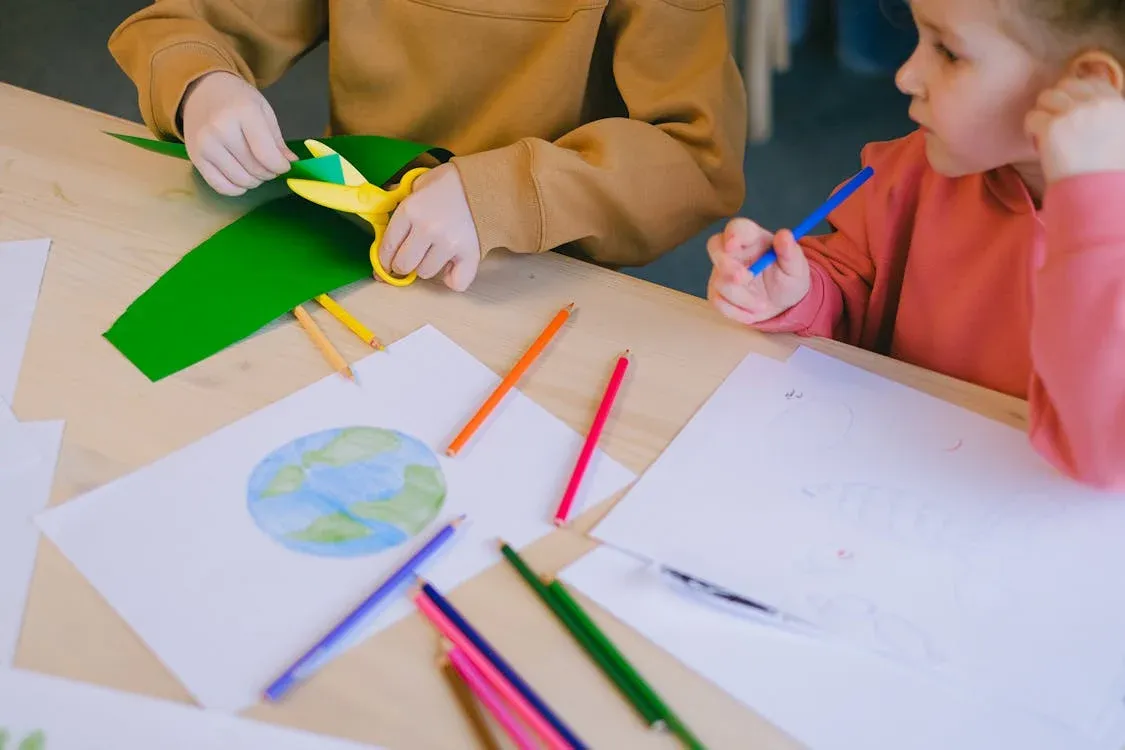20 Ways to Boost Your Child's Self-Esteem
In "20 Ways to Boost Your Child's Self-Esteem," you'll find several practical techniques for helping parents instill confidence and a healthy sense of self in their children.
- Tricia Quitales
- 5 min read

“20 Ways to Boost Your Child’s Self-Esteem” is a compilation of ideas created to assist parents on how to instill confidence and resilience in their children. The following on the list highlights practical strategies such as positive reinforcement, open communication, and setting realistic expectations. By integrating these techniques, parents can foster their child’s self-esteem and emotional well-being.
1. Promote an open conversation.
 Anna Shvets on Pexels
Anna Shvets on Pexels
Encourage honest and open communication to let your youngster realize their ideas and emotions count. Children who feel heard grow to value themselves more strongly. Ask them often about their day and their emotional state.
2. Appreciation Effort Beyond Results
 Helena Lopes on Pexels
Helena Lopes on Pexels
Emphasize your child’s effort and will instead of merely honoring accomplishment. This helps children realize that trying and learning are more vital than winning or reaching goals. From a growth perspective, this promotes resilience and self-confidence.
3. Create reasonable expectations.
 PNW Production on Pexels
PNW Production on Pexels
Establish goals and expectations that push your child without overwhelming her. Children who meet reasonable obstacles feel successful and competent. To guarantee success, break out more difficult chores into reasonable steps.
4. Model favorable self-talk.
 Victoria Strelka_ph on Pexels
Victoria Strelka_ph on Pexels
Children frequently reflect the attitudes and actions of adults, so teach good self-compassion and positive thinking. When you talk about yourself, use positive words. Also, demonstrate how to gracefully manage failures. This will help your child treat herself compassionately during trying times.
5. Honor Their Individuality
 Cottonbro Studio on Pexels
Cottonbro Studio on Pexels
Emphasizing your child’s distinct traits and skills will help them appreciate what makes them different. Tell them it’s natural to stand out and that everyone has unique qualities to contribute. Honor their uniqueness—that of their intelligence, inventiveness, or compassion.
6. Give Constant Motivation
 Annushka Ahuja on Pexels
Annushka Ahuja on Pexels
Be their most enthusiastic supporter and provide compliments often, particularly when they try new activities. Encouragement lets kids take chances without thinking about others’ opinions and creates confidence. Honor their efforts, even if the result isn’t flawless.
7. Instruct on problem-solving techniques.
 Pavel Danilyuk on Pexels
Pavel Danilyuk on Pexels
Give your youngster the tools they need to tackle obstacles confidently. Talk about possible fixes for age-appropriate challenges and allow them to lead in their resolution. This helps children become resilient and provides control over their surroundings.
8. Design a secure, encouraging surrounding.
 Mizuno K on Pexels
Mizuno K on Pexels
Make sure your youngster feels protected in their house—emotionally as much as physically. A secure, loving home helps your child develop self-worth and lets them take reasonable chances. Show them unwavering affection so they know they are appreciated anywhere.
9. Promote liberty
 Alex Green on Pexels
Alex Green on Pexels
Let your youngster make decisions and own them. Children who are allowed to make decisions feel more in charge of their lives. Independence helps people feel confident and proud of their capacity to negotiate life.
10. Limit Comparison to Others
 Danik Prihodko on Pexels
Danik Prihodko on Pexels
Steer clear of putting your child against their siblings or peers. Every child develops at their speed so that comparisons can undermine self-esteem. Rather, highlight their particular development and honor their specific successes.
11. Guide Their Acceptance of Mistakes
 Kindel Media on Pexels
Kindel Media on Pexels
Help your youngster to see that learning naturally involves failure. Show them that mistakes are chances for improvement rather than markers of their value or ability. Over time, encouraging perseverance against adversity helps them to build self-esteem.
12. Spend Quality Moments Together
 Alexander Mass on Pexels
Alexander Mass on Pexels
Give your child first priority for one-on-one time and activities they enjoy. This unique period deepens your relationship and gives your child value and understanding. It also presents chances to support and applaud their work immediately.
13. Respectful Behavior: Model
 RDNE stock project on Pexels
RDNE stock project on Pexels
Show your youngster respect, compassion, and sympathy toward others. They will pick up on this behavior when they realize you appreciate others and yourself. Good ties with peers and family help one feel confident in social settings.
14. Encourage Good Body Image
 Pavel Danilyuk on Pexels
Pavel Danilyuk on Pexels
Help your child to see their body for its purpose rather than only looks. Promote physical exercise for health above attractiveness; avoid disparaging comments regarding weight or appearance. Good body image helps to support general mental health and self-worth.
15. Give Them a Chance to Support Others
 Ron Lach on Pexels
Ron Lach on Pexels
Urge your child to volunteer or act compassionately. Helping others can raise children’s self-esteem, provide them with direction and gratification, emphasize their part in their community, and foster empathy.
16. Offer loving, clear boundaries
 Polisie Toys on Pexels
Polisie Toys on Pexels
Establishing limits helps kids to see their value and demand respect. It also offers a structure for personal accountability and self-control. Youngsters who know their limitations are more likely to be confident in their decisions.
17. Promote favorable peer relationships.
 ALINA MATVEYCHEVA on Pexels
ALINA MATVEYCHEVA on Pexels
Guide your youngster in forming and preserving good friendships. Good friendships with peers help one feel socially competent and like they belong, develop great social skills, and support dispute resolution, cooperation, and teamwork.
18. Encourage Originality
 Anna Shvets on Pexels
Anna Shvets on Pexels
Allow your child to use space to investigate their creativity through music, painting, or creative play. Creative expression enhances confidence as kids grow their own voices and special skills. Let them investigate free from assessment or expectation.
19. See their Strengths
 Cottonbro Studio on Pexels
Cottonbro Studio on Pexels
Talk often about your child’s qualities and abilities. Whether it’s academic success or social grace, appreciation increases their sense of capability. Valuate their conviction that they can make worthwhile contributions.
20. Express Appreciation
 Nataliya Vaitkevich on Pexels
Nataliya Vaitkevich on Pexels
Motivate your youngster to show thanks so they can concentrate on their life’s good parts. A thankfulness habit encourages good thinking and helps one to feel satisfied. Children who value what they have grown to see life from a better, healthier perspective.
- Tags:
- Family
- Kids
- Confidence
- Character
- Bonding